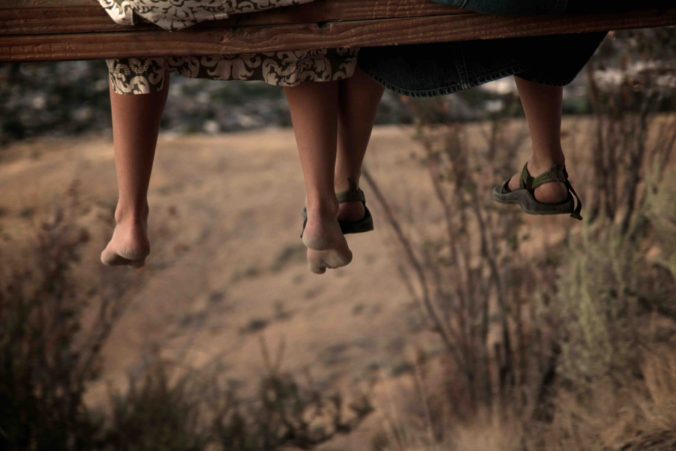This time of year, I find myself having conversations with the guy in the mirror more than usual. (Ehem, that would be yours truly for those thrown off by my metaphors.) It probably has something to do with being born on October 20th, just a month and a few days before Thanksgiving. Both my birthday and Thanksgiving happen to be occasions when I stop to look behind me, to learn, to wonder, to listen. . . And since they are only a month apart, the time between usually ends up being an overflow for the same.
At any rate.
One of my friends always asks on my birthday if I have any “new year’s resolutions.”
I do, yes. I do.
I start out down the well-beaten elk trail that leads in the general direction of my altar. The dog runs out in front, and I wonder if He’ll get it right. The summer’s monsoon (which I mostly missed for my travel schedule) has coaxed the grass to grow where my little personal trail should branch off of this one, so it’s basically gone. And anyway, does the dog even remember?
It’s midday, and other than the dog, I’m quite alone.
But obviously, he does remember. We get to the spot where my trail is supposed to be, and he cuts off. And I follow.
And when we get down there, he hesitates, glances at me as if to say, “whistle when you’re done if I’m not back yet” and trots off to do a bit more exploring.
And I stand there to do a bit of searching.
You know, if there’s one thing in greatest danger of getting a bit fuzzy by the time a frenzied summer is over, it’s the simple power of this.
I spend long days working, long nights praying, untold conversations trying to unravel human complications, and show how the gospel is enough. And the more sophisticated the human problems get, the more difficult it is.
Now I’m standing back where the rubber actually meets the road for me, and realizing this:
What I’m thirsty for, what my heart longs for, what I’m going to remember and keep remembering this year, is that regardless of how sophisticated human problems become, there is no such thing as “sophisticated godliness.” Godliness is “primitive.” It’s utterly basic. And therein lies it’s power. What I need, in the midst of a long grind to understand the complex psychological and neurological implications of addictions, and depression and OCD, and OCPD and Anxiety Disorder, is not a more complex gospel.
It is a simpler one.
The simple one I find here, in a cool little glen overlooking a little pile of rocks where I always find God waiting.
It’s always here, after all, that the world comes to make the most sense.
The dog comes back, sits down. Seems to stare at the same things I’m staring at.
And I sigh and look up, and then get up, and whisper as I back away:
“I’ll be back. Let’s do this another year.”

Leave a Reply